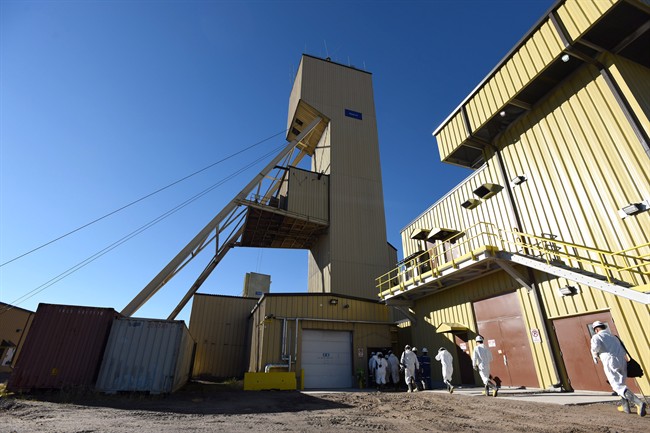Saskatoon-based Cameco said they are focusing on what they can control as it reported net earnings of $55 million for the first quarter of 2018.

The company said earnings were higher when compared to the same quarter of 2017 due to restructuring and higher uranium prices.
Cameco president and CEO Tim Gitzel said they were able to generate significant cash flow due to portfolio optimization and cost saving measures.

Get daily National news
“While our average unit cost of sales was higher than a year ago, this was expected due to the care and maintenance costs incurred while production is suspended at the McArthur River and Key Lake operation,” Gitzel said in a statement.
Cameco shut down production at the two sites in January, citing market oversupply and low prices, and expects it to last 10 months.
Gitzel cautioned demand for uranium remains mixed and the company’s outlook for 2018 remains unchanged, with cash flow expected to be similar to the previous year.
“Today the market remains quiet. There are a lot of moving pieces, and utilities continue to evaluate the implications of what is perhaps best described as unprecedented noise in the political economy,” Gitzel said.
“As 2018 unfolds we will continue to evaluate the market signals, however we remain resolved in our efforts to focus on what we can control and deliver long-term value to our shareholders.”
Cameco also said it expects a decision from a judge within 12 months in its tax dispute with the Canadian Revenue Agency.
The CRA wants to shift an estimated $7.4 billion in foreign earnings between 2003 and 2015 back to Canada, which could result in a potential $2.2 billion tax bill.


Comments